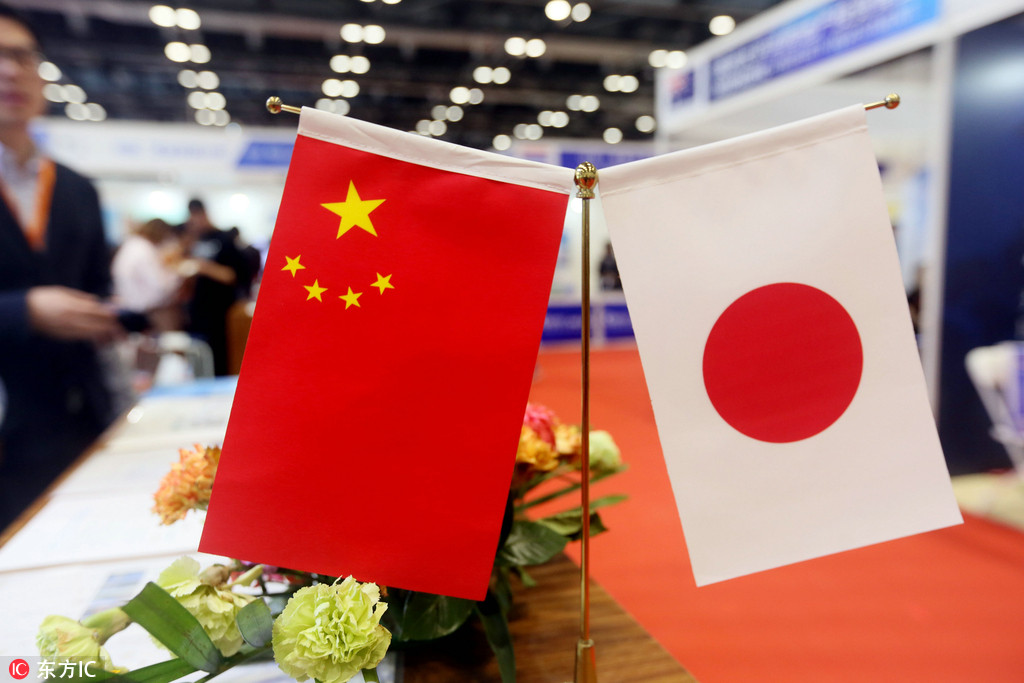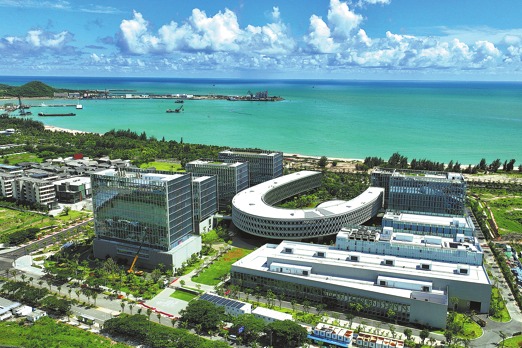Japan is moving further away from defense-only postwar strategy


The annual defense white papers Japan has released in recent years have delivered the same message: the security situation in the neighborhood is severe. They have come up with the same suggestion, too: Japan's defense capabilities must be increased.
The primary threats to Japan in these papers are the Democratic People's Republic of Korea, China and,sometimes, Russia.
Various challenges and destabilizing factors become more "tangible" and "acute", says this year's report that was approved by the Japanese Cabinet on Tuesday. The white paper recommends that necessary and sufficient defense capabilities be developed "qualitatively" and "quantitatively". Actually, Japan's defense budget has increased every year since Shinzo Abe began his second stint as prime minister in late 2012.
The Abe administration has changed Japan's postwar defense posture, by ordering two revisions to the National Defense Program Guidelines, revising the Japan-US Guidelines for Cooperative Defense, enacting legislation to expand the scope of Japan's security options and clear the path for Japan's exercise of collective self-defense, as well as pledging to amend Article 9 of the Constitution to codify the Self-Defense Forces' status and acquiring advanced military equipment.
Japan is set to update the NDPG and Mid-Term Defense Plan this year. The NDPG provides the long-term direction for the country's defense posture based on security assessments, and the MTDP offers five-year acquisition designs to meet those requirements. Discussions on how to revise the two documents are ongoing.
But the ruling Liberal Democratic Party has pitched its proposals for new NDPG and MTDP. Its "cross-domain defense concept" calls for a massive defense buildup while carrying forward existing themes such as seamless response to "gray zone" contingencies, improving joint interoperability and strengthening the Japan-US alliance.
The LDP also wants to strengthen Japan's presence in space and cybertechnology. And Japan's Ministry of Defense is considering to establish a new command center for cyberspace and outer space, deemed the "fourth and fifth battlefields" after land, sea and air. The two new realms are expected to be a theme in the updated NDPG.
As for the defense budget, the LDP proposed on May 25 the scrapping of the cap of 1 percent of GDP for defense spending, which has been in place since the Miki Takeo administration in 1976. Instead, it wants a 2 percent GDP target, the same as that for NATO's European member states.
So the new MTDP may not follow Japan's informal limit on defense spending, unveiling a grander defense strategy.
Besides, Japan's National Security Council plans to lead the defense buildup. In other words, the Prime Minister's Office is expected to have a bigger say in the choice and acquisition of defense equipment, which were previously handled by the Self-Defense Forces.
The NSC, established in December 2013, formulates Japan's key security policies, with its permanent secretariat set up in the Cabinet Secretariat. Chaired by the prime minister and attended by the defense minister, foreign minister and the chief Cabinet secretary, the NSC discusses mid- to long-term security policies.
The NSC is expected to introduce the new decision-making mechanism in the next five-year MTDP which starts in fiscal 2019. Many say that by taking over these functions, the council will help the government to take into consideration the bigger picture of Japan's security situation.
On Jan 4, Abe said at a news conference that his administration will "strive to strengthen our defenses, not just as an extension of existing (practices) but in a way that's truly necessary to protect the citizens". Thus he set the tone for the upcoming NDPG and MTDP, although it is unclear what ideas will finally make it to the two documents.
But what is clear is that they will reset Japan's security policy direction, moving the country further away from the postwar defense-only strategy.
The author is China Daily Tokyo bureau chief.


































